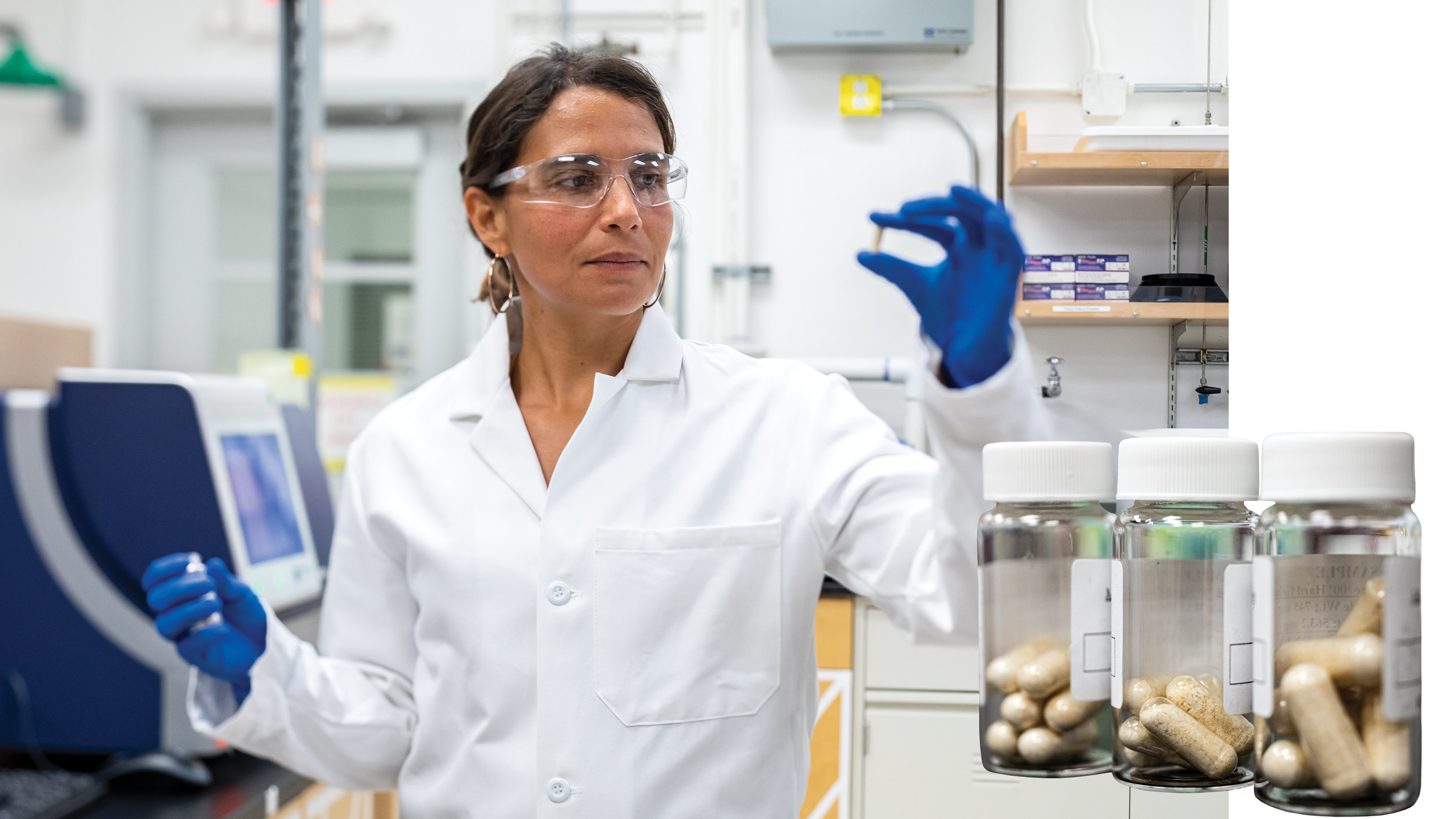 Rebecca Abergel (Photo by Marilyn Chung/Lawrence Berkeley National Laboratory)
Rebecca Abergel (Photo by Marilyn Chung/Lawrence Berkeley National Laboratory)Double duty
Gadolinium is a metallic element widely used in MRI contrast dyes to improve the clarity of images and help with diagnostic accuracy. But some patients have reported odd symptoms following scans in which these contrast dyes were used, and studies have found gadolinium deposits in the bones and brains of MRI patients. Now, a pill originally developed by nuclear engineering professor Rebecca Abergel and her Berkeley Lab colleagues to treat radiation poisoning may also be effective in protecting patients from the potentially toxic effects of gadolinium.
The pill, designed to remove radioactive contaminants from the body, has an ingredient that is nontoxic and highly effective at clearing gadolinium deposits. In a study, the team was able to show this drug — if given right before or after an MRI — could prevent up to 96% of the gadolinium from depositing. It was also shown to be much more selective for gadolinium than similar drugs, which means it won’t deplete the body of important minerals. The researchers hope to pursue further investigations into how gadolinium interacts with the human body.

